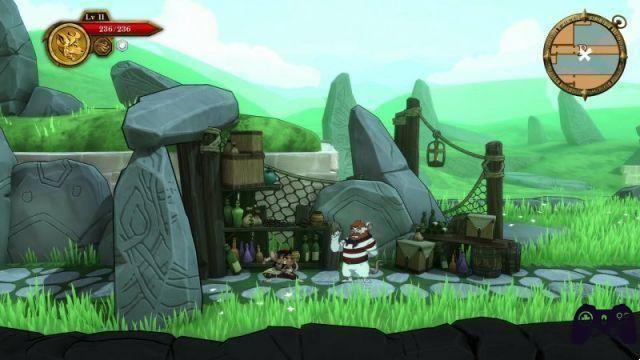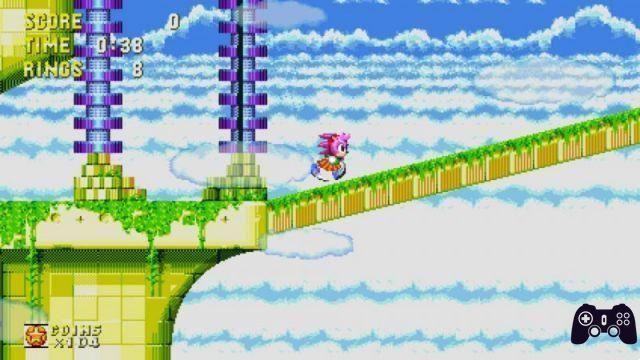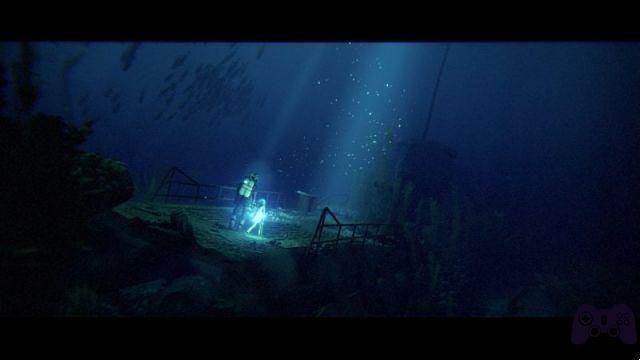The Expanse is perhaps one of the strangest entertainment products of recent years.. We are talking about a splendid science fiction saga made up of numerous novels and short stories, which was later made into an excellent television series: an absolute cult for lovers of the genre. A real literary and television case that, however, remains almost unknown outside the science fiction bubble. A real shame because the universe of The Expanse is capable of putting the greatest space operas in science fiction to shame, in short: everyone should try it.
Telltale and the resurrected Deck Nine saw a unique opportunity in this series, producing and developing The Expanse: a Telltale Series, a five-episode narrative adventure, plus an extra one titled "Archangel". We had played the first episode this spring, interviewed the developers and the leading actress and were largely convinced of the product. Now that we have played this entire season we may be a little less enthusiastic, but at least we are still satisfied with the final result, which we will tell you in detail in our The Expanse review: an eye-opening series.
Plot: between location and rhythm.
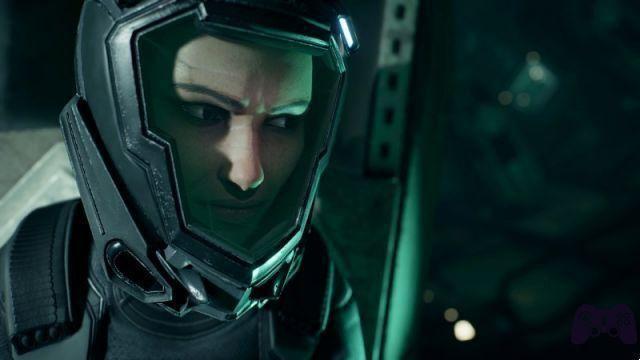
The Expanse: a Telltale Series is directly linked to the Syfy/Amazon production and is positioned as a prequel to the television events. The plot follows one of the series' protagonists, Camina Drummer., aboard the ship Artemis, showing this character's past. The actress who played her on the small screen, Cara Gee, returns to the role to voice her, and from the first to the last episode she spares no effort and gives an incredible performance, which can be enjoyed in its entirety given that the game is entirely in English subtitled into Spanish. The localization is well done in general. and he is not even wrong in the technical and technological terminology of the narrative universe of The Expanse; The only flaw that we do not appreciate is the translation of some proper names of places into Spanish, given that in the series they are always mentioned in the English version (such as the Ceres space station, which is translated into the Ceres language).

Summarizing the five episodes, the story told by The Expanse: a Telltale Series is pleasant and consistent with the events narrated in the television series, but Has major pacing issues.. The first episode clearly introduces the game mechanics and provides a complete start even for those who don't know the show. The second has a dramatic drop in quality, resulting in a carbon copy of the former, but less compelling, save for a few moments of pathos. The third is a masterpiece, with a very expansive underlying idea that connects strongly with the events seen on the small screen. The fourth falls back into banality, supported only by the performance of Cara Gee and another well-known actor (spoiler: Jared Harris), and which is only recovered at the end thanks to the arrival of a key character in the show. The fifth closes out the story by speeding up the action portion with a multitude of quick events and then taking the plot to where fans already know it will end.
zero gravity game

Configured as a narrative adventure, the playful and interactive mechanics of The Expanse: a Telltale Series are reduced to the basics but, when supported by a good script, are effective. Basically the phases of the game are divided into exploration, dialogues and action., represented by the aforementioned fast-time events. In each episode Drummer visits different places and can do so with greater or lesser depth. The more care you put into your exploration, the better your chances of finding key items related to the fate of all the supporting characters. Then there are other materials that can be collected during exploration but have no real effect on the events. Finally, some things scattered around the environment will never end up in our inventory, but are simple pretexts to start a dialogue. It's clearly a way to add a layer of passive storytelling and make the exploration less lonely.
The most beautiful moments of The Expanse: a Telltale Series, however, are precisely those in which we find ourselves contemplating space., silent, motionless, drifting. In this Deck Nine he was excellent, managing to immerse the player in one of the craziest fantasies of science fiction fans. On a technical level, the game has taken several steps forward since we tested it in May, although the zero-gravity movement system remains unchanged. In the long run, although we admit that this is a very subjective criticism, we suffer a little from the lack of drift in zero gravity movements. When you move freely in space you can clearly see the animation of the suit's thrusters, which emit small puffs of air. When you want to stop, Drummer stops immediately without anything counteracting the lack of inertia. We realize that creating a realistic zero-gravity movement system was complex and decidedly uncomfortable for the player to handle; some contextual animation on the front of the suit would have been enough. The other great moments are the space battles, with superlative shots and direction, like the television series.
Narrative and writing crossroads

A question that remained unresolved after the first encounter with The Expanse: the Telltale Series was clearly linked to the narrative crossover and the impact of the choices on the general development of the plot, in short, to the power of the butterfly effect. Unfortunately, we had to point out that the general formula of the "Telltale" games does not change, although this time Deck Nine is at the helm of the project. The evolution of the plot, and the fate of the secondary characters, remains linked to a very schematic network of actions and dialogues.. The year was 2010 when players faced the famous suicide mission of Mass Effect 2, where, to save the entire crew, it was necessary to complete a series of secondary missions and choose who to assign to which role according to precise criteria.

In short, there is a scheme with which to resolve the matter, as if it were not a series of events, but rather a puzzle. We were a little disappointed to see that, after twelve years, a narrative title still fails to leave behind this methodical and obvious causality. In fact, concentrating the discussion, all the original co-stars (in the sense of never seen in the television series) can die or survive and the difference will be marked by the desire to investigate the character's past, giving him an object and supporting him. him at a narrative crossroads. A dramatically named formula and that leads the player with a minimum of insight to immediately see the scenes behind the curtain of the plot. Furthermore, during our campaign we never had to choose whether to side with one crew member or another.

Another sour observation was learning that The Expanse: a Telltale Series is, in our opinion, more enjoyable for those who have never seen the TV series. In fact, being a prequel, viewers already know how the story will end, on which space shores Drummer will land, and who will surely not perish during the adventure. The writing of the script and the characters is perhaps more interesting than the events narrated., and here we see that Deck Nine did their homework... and that the original writers of the novel series read and approved the script. The characters are very well outlined, capable of being loved and hated regardless of whether or not they know the narrative universe of The Expanse. Those who have watched all six television seasons will be able to notice subtle but significant details, as if the influence of Artemis' team and its enemies is reflected in the evolution of the television drummer; especially the antagonist Toussant, who has much of the belt in front of Tynan in the fifth and sixth seasons.
The opinion of the fan.
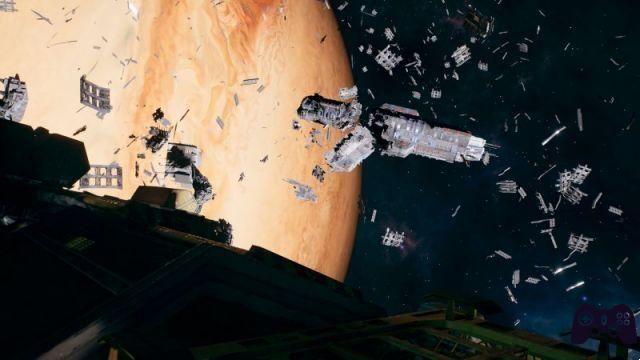
The bitterness we mentioned arises precisely from the nature of the prequel to The Expanse: A Telltale Series. There is a great risk that this whole story in the end will have no real weight for the enthusiast: does it really matter whether the helmsman, the doctor or the engineer of the Artemide survive? Did we meet them in the television series? Do they play a crucial role in the affairs of Holden and company? This is the big bet that Deck Nine had to make together with Telltale and the result depends a lot on the sensitivity of the player. Our impression, and here the meticulousness of the Expanse enthusiast rather than the critic comes into play, is that everything was played according to pure marketing logic.
Creating an original story without any of the television cast would have been suicidal, and we agree. The strategy was, therefore, to opt for a well-known character, the one most loved by fans, and give Drummer his own story, a bit like what happened to Fred Johnson and Amos Burton with the novels written "The Station Butcher." Anderson” and “The Butter Churn.” Great idea on paper, Too bad it's very clear that this original chapter is extremely cautious and conservative., with no real plot twists for fans of The Expanse. We appreciate the fact that all of the multiple choice answers manage to reflect Drummer's character, in that whatever choice the player makes always remains "in character", but in terms of events, very little is surprising.
Conclusions
Tested version Xbox Series X digital delivery Xbox store Price 24,99 € Holygamerz.com 7.5 Readers (10) 7.6 your voteWe had very high expectations for The Expanse: a Telltale Series and we can say that they were largely maintained. Excellent character writing, superlative performances and direction capable of shining in some moments of the adventure are undoubtedly the strong points. On the other hand, however, we are talking about a plot that maintains a schematic structure based on very visible clues, in which it is easy to read between the lines. We greatly appreciate the choice to create a narrative adventure when, given the nature of the material, it would have been infinitely easier to create a role-playing game (The Expanse novels are based on a narrative universe created to be a role-playing game, ed.) and We appreciate the effort. However, when comparing the structure of these five episodes with other works from Deck Nine and Telltale, it is a little discouraging to see that the formula has not evolved over time. Furthermore, in general, the adventure suffers sharp drops in pace. The attention to detail and a handful of really emotional moments are certainly appreciated, but one has a bit of the feeling of watching a story written with a handbrake, and already knowing how everything will end dampens the player's choices a little.
PRO
- Fully respected narrative universe.
- High-level acting performances.
- Exquisitely written secondary characters.
AGAINST
- The pace of the plot fluctuates a lot.
- Predictable narrative crossroads
- Nice but not exciting story.




